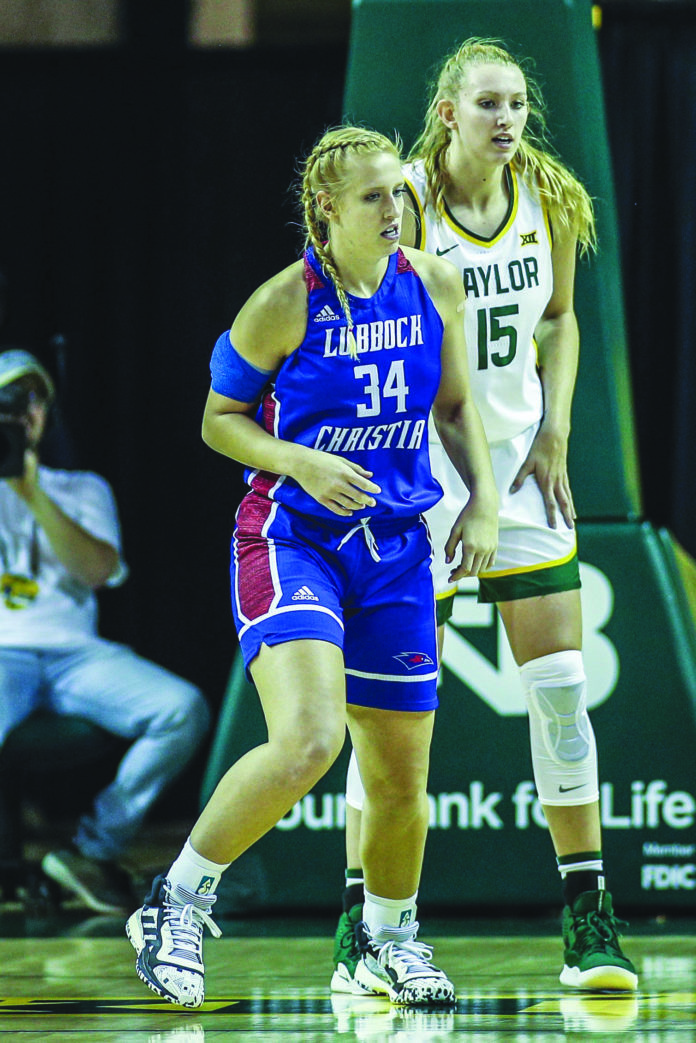
By Julia Pearl | Contributor
With a research foundation, a month dedicated to awareness and 1.25 million Americans living with it, diabetes is a widespread disease that affects a large group of people, including college students.
For National Diabetes Month, students shared their experiences living with Type 1 diabetes and the difficulties most confront stemming from others’ misconceptions and lack of knowledge about the disease. This presents a number of additional challenges to college students, and in some cases, college athletes.
In support of Lauren Cox, a Baylor women’s basketball player with Type 1, Baylor hosted their fourth annual Type 1 Diabetes Awareness Game on Wednesday, Oct. 30. In and out of their respective sports, diabetic athletes face a variety of challenges.
Kaylee Culpepper, a sophomore softball player at Schreiner University in Kerville, had to navigate conflict with her roommate as a result of fluctuations in blood glucose, also known as diabetic highs and lows.
“She didn’t understand what exactly [diabetes] entailed,” Culpepper said. “Waking up in the middle of the night and stuff like that caused a lot of issues between us.”
Culpepper had to wake up several times during the night to ensure her blood glucose stayed within a safe range. Treating glucose highs and lows requires close monitoring of blood sugar levels and either carbohydrates to bring glucose levels up or more insulin to lower it.
Insulin is used to convert the carbohydrates in food into energy. Because a diabetic’s body cannot regulate the amount of sugar in the blood, glucose levels drop and rise depending on diet, stress, hormones and the amount of insulin used.
Frisco freshman Josh Esparza said his lows cause him to lose sleep, something he said is a frustrating obstacle when his time is already constrained by the demands of college.
“I think the worst is waking up in the middle of the night because your blood sugar is low,” Esparza said. “At that point, I can’t go to sleep because if I sleep, I might die.”
Esparza was 2 years old when his immune system began to attack the insulin-producing cells in his pancreas, causing his Type 1 diabetes. For young people diagnosed with the disease, responsibility for managing diabetes often initially falls on the child’s guardians.
Marcy Johnson, Esparza’s mother and a former legislative chair for JDRF, said she found her purpose as a result of her son’s disease.
“It was an incredibly difficult thing that happened to us, but it also became my reason for living,” Johnson said. “It gave me, as a parent, a voice, a platform and a way to inform others.”
For diabetics, Johnson said the transition to college comes with an added layer of responsibility, as they can no longer rely on their family or support system in the same way. She said she admires Type 1 diabetics for their resilience.
“They have to deal with something that people can’t see,” Johnson said. “They handle going to class, having to study or take an exam some days when they’re not feeling great. They still get up, and they still perform.”
Blood glucose levels impact each diabetic a bit differently, but most diabetics experience difficulty concentrating when their glucose number is too high. Conversely, when their number drops dangerously low, diabetics risk losing consciousness.
Kingwood freshman Claudia Shirley said she personally finds lows to be worse than highs.
“I’ll get really shaky and disoriented, and I can’t really focus on anything I’m doing,” Shirley said. “The lows are more debilitating.”
Despite all the challenges diabetes presents, Johnson said she raised her son to understand he was not limited by diabetes.
“We’re not victims to anything,” Johnson said. “These are the cards that we’ve been dealt. You use that as an opportunity to spring forward and to educate and empower others.”





